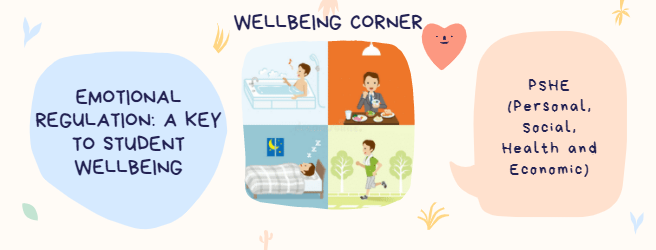PSHE Education Team

An integral part of PSHE curriculum is to teach and develop students’ understanding of how and why taking care of their emotional wellbeing matters. In the last two months of PSHE, we provided chances for students to explore why we feel and express emotions in certain ways. We also had students sharing ways to analyse, reflect and manage one’s emotions and discussing how it is an important part of maintaining student wellbeing.
What can parents do to help children regulate their emotions:
- Acknowledge their feelings
Teenagers often struggle to express their emotions verbally. Sometimes they would say “I’m fine” but their body language shows that they are experiencing negative emotions. Parents can start noticing these signs and encourage them to openly talk about their feelings, most importantly to emphasize that all feelings are valid.
- Empathize and reflect
Give them warm comments and let them know that you’ll be there for them. Simple words like “it’s okay” and “I’ll be here when you ready to talk about it” are very meaningful to them. Guide them to reflect on their emotion.
- Help them in finding effective coping strategies
Teach your children to differentiate between healthy and unhealthy coping mechanisms. They often feel intense emotions which leads to aggression, depression, or socially withdrawal. To prevent this, parents can show (and become a role-model) various effective strategies, such as mindfulness, write in a journal, seek help, and self-care activities.
Additional resources:
- https://parentandteen.com/self-regulation/ to see more strategies to help your teen manage their emotions
- https://teachchildrenmeditation.com/ to discover various mindfulness technique
- https://childmind.org/article/choosing-a-parent-training-program/ list of parent training programs to support your child’s emotional state and strengthen the parent-child bond
